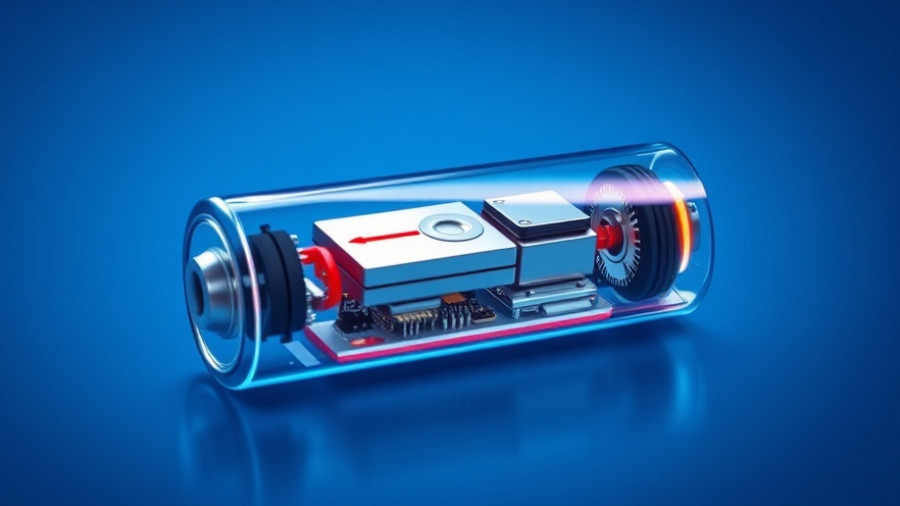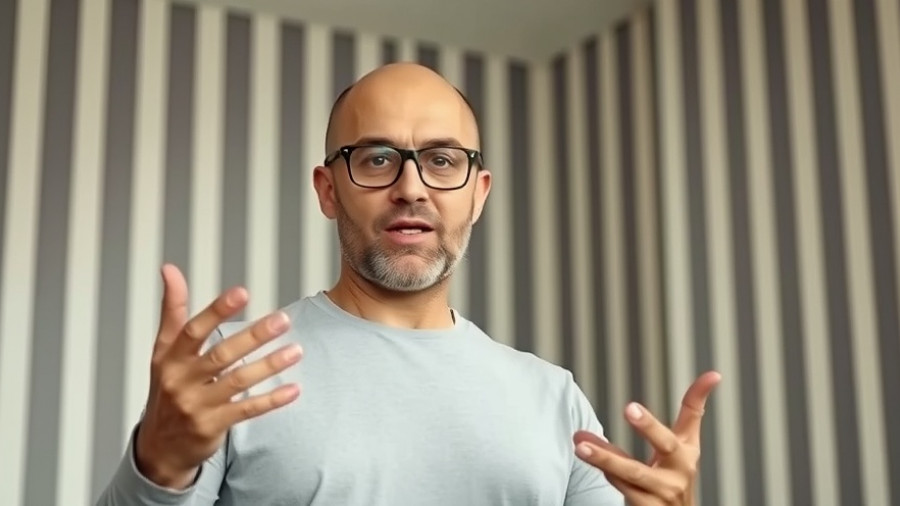
Breaking Down Plastic Waste: What’s Next for Recycling?
The ongoing struggle against plastic pollution is a pressing concern for environmentally conscious individuals and homeowners alike. As news of potential breakthroughs in recycling technology emerges, the hopes of transforming discarded plastics into valuable resources rise. Recently, innovations from various scientists and institutions have offered glimpses of a more sustainable future, where the recycling of mixed plastics could finally become a reality.
In 'Have We Finally Solved The Plastic Problem?', the exploration of groundbreaking recycling technologies prompts a deeper analysis of their potential impacts on our waste management systems.
Recent Innovations That Might Change the Game
In the journey towards effective recycling methods, Northwestern University has pioneered a new catalyst that can specifically target and break down polypropylene (PP) plastics from other mixed materials. This approach not only simplifies the sorting process but also enables the recycling of plastics that were previously deemed unrecyclable. Meanwhile, the Korea Institute of Machinery and Materials (KIMM) in South Korea has developed a hydrogen plasma torch capable of rapidly decomposing mixed plastics back into their basic chemical components in less than a tenth of a second. The potential to convert waste into reusable raw materials like ethylene and benzene could revolutionize the industry.
A Closer Look at the Recycling Challenge
Historically, the promise of recycling has often fallen short. Currently, a mere 15% of plastics produced globally reach recycling facilities, with the United States lagging at a dismal 5%. This gap has raised questions about the efficacy of existing recycling methods, particularly as most plastics end up in landfills or the ocean. The primary challenge lies in the chemical makeup of plastics; they are created from fossil fuels and often compete economically with new plastic production. This means that for projects to succeed, they must present a cost-effective alternative to new plastic manufacturing.
Understanding the Economics Behind Plastic Recycling
At the heart of recycling challenges are the economic factors. With fluctuating oil prices and the high initial investment required to build out advanced recycling facilities, many private investors hesitate to dive into the recycling game. For instance, mechanical recycling, which involves washing and re-melting plastics, can be hampered by contamination from labels and colors, leading to downcycling where recycled plastics end up in lower-quality products instead of being refashioned into new goods. The recent developments, however, suggest a shift where the economics of recycling could finally start to pay off for investors and communities concerned about pollution.
Unlocking True Circularity: The Role of Enzymatic Recycling
An attractive alternative to conventional recycling methods lies in enzymatic recycling, showcased by Carbios, a company shifting how we think about plastic waste. Employing biological catalysts, these enzymes can decompose plastics into their fundamental building blocks using just warm water. This method offers a low-energy solution that scales well with the demands of contemporary recycling needs. As Carbios plans to launch a facility in France that can recycle 50,000 metric tons of PET each year, it readies itself to tackle various forms of polyester, significantly impacting the fashion and textile industries known for their substantial plastic usage.
The Future of Recycling Technology
The variety of innovative recycling technologies suggests significant advances are on the horizon. While each method—be it the hydrogen plasma torch, enzymatic recycling, or the catalytic approaches at Northwestern—holds potential, a combined approach may yield the most effective results. Utilizing both mechanical and chemical recycling will give communities the versatility necessary to tackle different types of plastic waste effectively. As these technologies gain traction, they could reshape the plastic landscape, providing sustainable alternatives while curbing pollution.
Call to Action: Join the Movement Towards Sustainable Living
As we embrace these exciting developments in recycling and technology, it encourages us to think critically about our use of plastic and the choices we make as consumers. Engaging with these technologies can lead to a cleaner environment and an enhanced quality of life. Explore options for sustainable living in your own home and advocate for innovations in recycling in your community. Together, we can champion a future where plastic waste becomes a resource rather than a burden.
 Add Row
Add Row  Add
Add 



Write A Comment